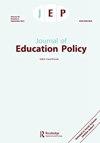台湾教学的产生与政策取向
IF 3
2区 教育学
Q1 EDUCATION & EDUCATIONAL RESEARCH
引用次数: 3
摘要
“全民教育”(TFAll)是一个基于“为美国教育”的全球项目网络。自2007年以来,TFAll已传播到60多个国家,并对教育管辖区的教育政策产生了相当大的影响。然而,扫描研究已经检查了基于该模型但与TFAll无关的“影子”计划,如为台湾教学(TFT)。本文对TFT进行了批判性的政策分析,并考察了它的出现和与教育政策的不一致。我们的分析首先强调了TFT从TFAll及其附属项目中获得的灵感和支持,尽管它是非官方的。然后,本文考察了TFT如何与台湾教育最近放松管制的政策转变在战略上保持一致。我们还发现,TFT与关键的教育结构不一致,包括国家教师工资表和教师教育系统,导致了一类新的流动教师,他们在承担的教学角色中处于独特的地位,但在很大程度上无法在TFT之外继续教学。我们认为,在教育政策研究中,更多的注意力应该集中在(联合国)官方TFAll计划的影响上,特别是考虑到它们在影响全球教育变革方面的不成比例的权力和定位,以及它们与国家体系的(错误)一致性。本文章由计算机程序翻译,如有差异,请以英文原文为准。
The Emergence and Policy (mis)Alignment of Teach For Taiwan
ABSTRACT Teach For All (TFAll) is global network of programs based on Teach For America. Since 2007, TFAll has spread to more than 60 countries and had a considerable impact on educational policy across educational jurisdictions. Scant research, however, has examined ‘shadow’ programs based on this model but unaffiliated with TFAll, such as Teach For Taiwan (TFT). This paper engages in a critical policy analysis of TFT and examines both its emergence and (mis)alignment with educational policy. Our analysis first highlights the inspiration and support TFT has drawn from TFAll and its affiliate programs, despite its unofficial status. The paper then examines how TFT is aligned strategically with recent policy shifts toward deregulation in Taiwanese education. We also find that TFT is misaligned with key educational structures, including the national salary scale for teachers and teacher education system, resulting in a new category of transient teachers who are uniquely positioned in the teaching roles they assume but largely unable to continue teaching beyond TFT. We argue that more attention within education policy studies should focus on the impacts of (un)official TFAll programs – particularly given their disproportionate power and positioning to effect global educational change – and their (mis)alignments with national systems.
求助全文
通过发布文献求助,成功后即可免费获取论文全文。
去求助
来源期刊

Journal of Education Policy
EDUCATION & EDUCATIONAL RESEARCH-
CiteScore
8.10
自引率
8.00%
发文量
25
期刊介绍:
The Journal of Education Policy publishes original, critically and theoretically informed research that discusses, analyses and debates policymaking, policy implementation and the impact of policy at all levels and in all facets of formal and informal education. The journal is interested in analysis and theorisation of policy that is transposable, that has generic interest and relevance - national policy case studies would need to be conceptually and/or methodologically generalisable. The journal also publishes work that presents new methods of research and research studies that are experimental and innovative. The journal offers a forum for theoretical debate, as well as historical, philosophical and comparative studies, across different countries, contexts and levels of education. A valuable resource for academics, researchers, educators and policy makers, Journal of Education Policy provides rigorous and original insights into educational policy development, implications and global impact.
 求助内容:
求助内容: 应助结果提醒方式:
应助结果提醒方式:


